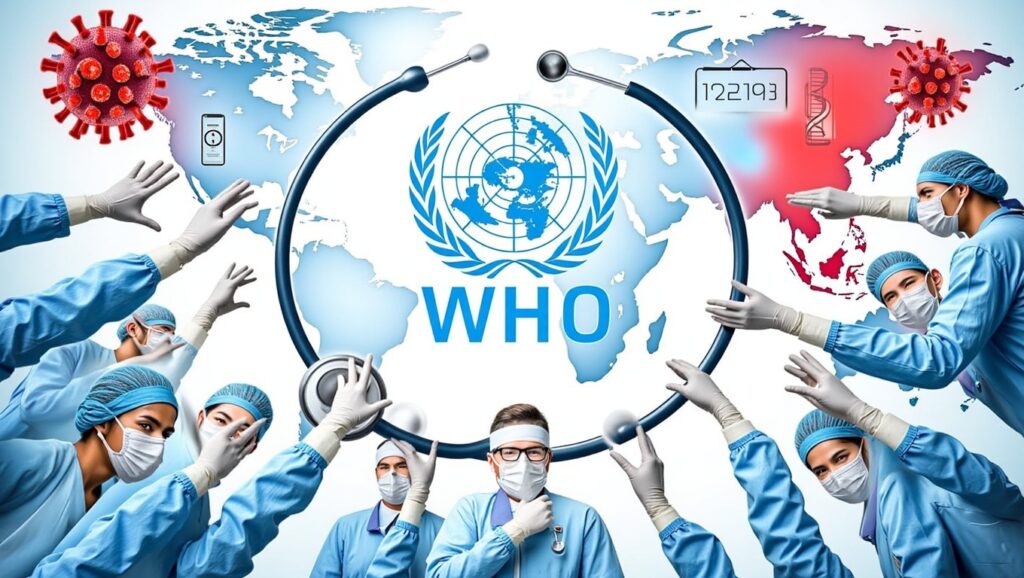The World Health Organization (WHO) has played a pivotal role in addressing mpox, a disease of increasing global concern. As outbreaks have surged in various regions, the organization has mobilized resources, expertise, and partnerships to combat its spread. This article delves into WHO’s work on mpox, highlighting its efforts to mitigate risks, provide healthcare solutions, and ensure global health security.

Understanding Mpox and Its Relevance
Mpox, formerly known as monkeypox, is a zoonotic disease caused by the mpox virus. While it was initially identified in Central and West Africa, recent outbreaks have demonstrated its capacity to spread beyond endemic regions. Factors such as global travel and human-wildlife interaction have amplified its reach, making it a pressing issue for international health agencies. WHO’s work on mpox underscores the necessity of a coordinated response to address both immediate outbreaks and long-term prevention.
Surveillance and Data Collection
A cornerstone of WHO’s approach to mpox is its robust surveillance and data collection initiatives. Through partnerships with national health agencies, the organization monitors disease trends and identifies hotspots. This data-driven approach enables early detection, ensuring swift responses to emerging outbreaks. By leveraging digital tools and fostering cross-border collaborations, WHO enhances transparency and promotes the timely sharing of critical information.
Research and Scientific Guidance
WHO’s work on mpox extends to facilitating research and issuing scientific guidelines. Collaborating with leading institutions, it supports studies on virus transmission, vaccine efficacy, and potential treatments. For instance, WHO’s Strategic Advisory Group of Experts (SAGE) has provided critical recommendations on vaccine deployment in affected regions. Such efforts bridge knowledge gaps, empowering healthcare professionals with evidence-based strategies to combat the disease effectively.
Strengthening Healthcare Systems
A key aspect of WHO’s mission involves bolstering healthcare infrastructure in vulnerable regions. The organization provides technical assistance, training, and essential medical supplies to countries grappling with mpox outbreaks. Furthermore, WHO’s Integrated Disease Surveillance and Response (IDSR) framework helps nations build resilient systems capable of managing mpox alongside other health threats. These measures ensure that even resource-limited settings can respond effectively to crises.
Public Awareness and Community Engagement
WHO recognizes the importance of public awareness in curbing mpox transmission. Its campaigns focus on educating communities about prevention methods, such as safe handling of animals and prompt reporting of symptoms. By working closely with local leaders and organizations, WHO tailors its messaging to cultural contexts, fostering trust and encouraging compliance. Such efforts not only address the current outbreak but also build a foundation for sustained disease prevention.
Addressing Vaccine Accessibility
Ensuring equitable vaccine distribution is a cornerstone of WHO’s work on mpox. The organization collaborates with governments and manufacturers to prioritize vaccine access for high-risk populations. Programs like COVAX, initially designed for COVID-19, have been adapted to facilitate mpox vaccine delivery. By emphasizing fairness and inclusivity, WHO aims to reduce disparities and protect vulnerable communities.
Practical Health Advice for Readers
Given the global relevance of mpox, individuals can take proactive steps to safeguard their health. Practicing good hygiene, avoiding contact with infected animals, and staying informed about outbreaks are crucial. For those in affected areas, seeking timely medical attention and adhering to public health guidelines can significantly reduce risks. Remaining vigilant and adopting preventive measures can make a substantial difference in mitigating mpox’s impact.

A Call to Action
WHO’s work on mpox highlights the importance of global collaboration in addressing health crises. The organization’s efforts—from surveillance to vaccine equity—serve as a blueprint for combating emerging diseases. As individuals, staying informed and proactive remains vital. By supporting initiatives like WHO’s and adopting preventive measures, we contribute to a healthier and more resilient global community.
Mental Health and COVID-19: Addressing the Pandemic’s Impact


Pingback: Understanding Mpox: Science in 5 Minutes - stay healthy today
Pingback: Mpox Outbreak: Travel-Linked Cases & Global Epidemiology Trends - stay healthy today